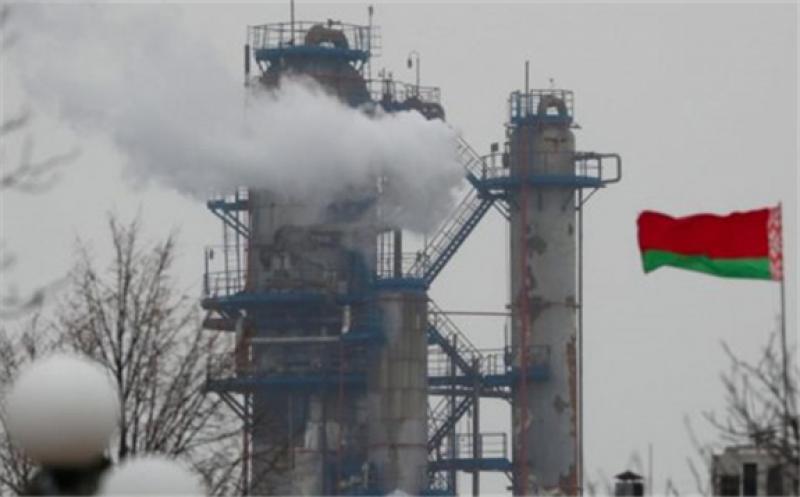On December 29, 2020, Belarusian Prime Minister Roman Golovchenko stated that Russian energy supplies to Belarus in 2021 will be purchased under “favorable terms,” thus confirming that the months-long negotiations between the two countries had concluded (BelTA, December 29, 2020). The details of the bilateral deal, however, do not appear to reflect any sort of compromise by both sides. Rather, Belarus’s authorities effectively agreed to the specific conditions that they were actively opposing back in 2020, revealing the Belarusian government’s reduced ability to withstand Kremlin pressure under the current, “post-election” circumstances.

The protocol between Belarus’s government and Russia’s Gazprom regarding natural gas supplies in 2021 was officially signed on December 24 (Belarus-tr.gazprom.ru, December 24, 2020). As the Belarusian Ministry of Energy disclosed then, the price for Belarus was set at “practically the same” level as in 2020, when Russian gas was being delivered to the country for $127 per thousand cubic meters (Minenergo.gov.by, December 24, 2020). Although Prime Minister Golovchenko argued that the agreed-to terms are “very comfortable” (BelTA, December 29, 2020), they surely do not meet Minsk’s expectations. Throughout the negotiations, Belarus was pushing hard to secure the same gas prices as those enjoyed by domestic consumers in Russia for many years already; Minsk even unilaterally withheld some payment it owed to Gazprom last year, just as it had done in 2016 (see EDM, August 11, 2020). Thus, the terms of natural gas supplies remain a possible bone of contention between the two countries in the future.
At the same time, Belarusians agreed to the Russian conditions in the case of crude oil supplies. Since 2015, Russia has been gradually raising its oil price for Belarus while implementing the so-called “tax maneuver”—its domestic fiscal change program aimed at replacing export duties with a mineral extraction tax. Belarus had previously been importing Russian crude on a duty-free basis, so the tax maneuver brings additional pain to an already-stressed Belarusian economy. Heretofore, Minsk had sharply resisted this new pricing mechanism, which led to disruptions in Russian oil supplies to Belarusian refineries in the first quarter of 2020 (see EDM, March 5, 2020). But in the concluding round of talks, Belarus apparently dropped further objections to the tax maneuver price hike, which, over the course of 2021, may cost it as much as $200 million–$300 million under current global oil prices. Moreover, Minsk will receive no additional compensation from the Russian side.
Importantly, the Belarusian government has also announced that Russian suppliers are ready to provide Belarus’s refineries with as much crude as they need, suggesting that non-Russian oil imports in 2021 will most probably be rather marginal (BelTA, December 27, 2020). As has been disclosed, the expected volume of Russian crude for Belarus in the first quarter has been set at 4.5 million tons, with the biggest share being attributed to Rosneft—2.1 million tons (TASS, December 29, 2020). Consequently, total Russian supplies to Belarus in 2021 will likely amount to as much as 18 million tons, enough to cover all of the latter’s refining needs in the coming year (1prime.ru, December 1, 2020). Crude coming from Azerbaijani SOCAR in 2021 under a just-signed contract (Report.az, December 31, 2020) is expected to remain at the current level, limited to one tanker delivery per month.
Somewhat surprisingly, neither country has so far provided any details on the possible redirection of the transit of Belarusian oil products from the Baltic States’ transshipment terminals to Russian seaports. Russia had been pushing Belarus to agree to this reorientation since August 2020 (see EDM, September 21, 2020). So while oil and gas supplies appear to have been fully agreed upon for the moment, the issue of what route Belarus’s oil product exports will take may become a developing story in the coming months. This is especially the case if one takes into account that the Belarusian Oil Company (BNK) has already stopped offering new oil product cargoes via the Lithuanian port of Klaipeda (Kn.lt, December 15, 2020); moreover, the firm has recently refused to extend its previous long-term agreement with Lithuanian Railways (Delfi.lt, January 4, 2021).
According to Russian Deputy Prime Minister Alexander Novak, the potential redirection of Belarusian oil product shipments is currently still being discussed by the transport ministries of both countries and the companies involved. Most probably, Novak was referring to BNK, Russian Railways and the Russian transshipment terminals on the Baltic Sea. As the high-level official suggested, the first cargoes might find their way to Russia’s seaports before the end of 2021, and the diversion of Belarusian oil products will probably occur gradually, step by step (Interfax, January 4). This characterization, however, only confirms that any far-reaching decisions in that regard presumably have yet to be made.